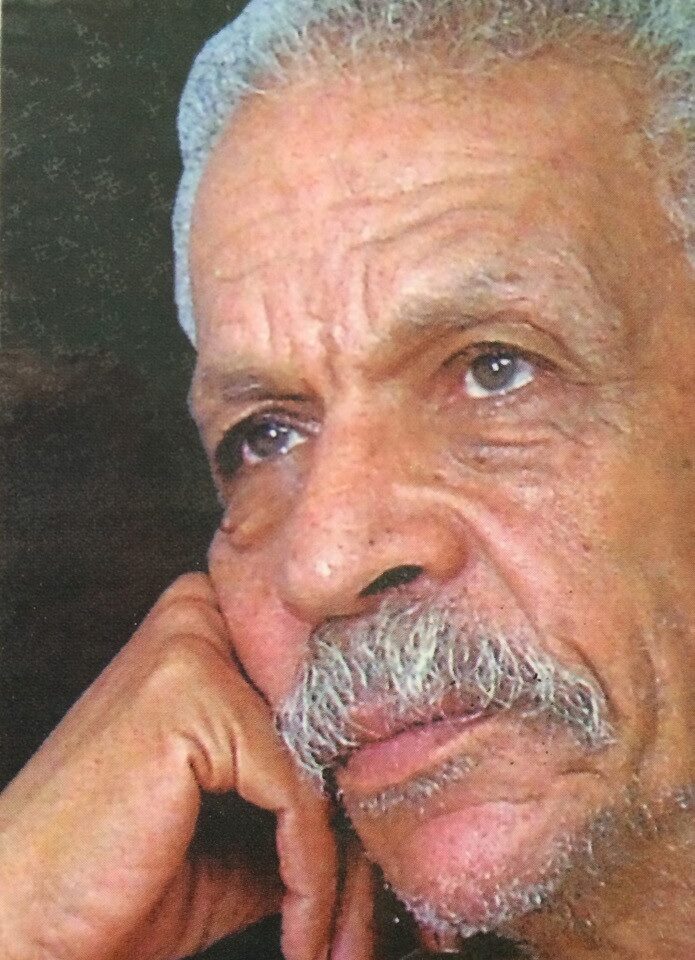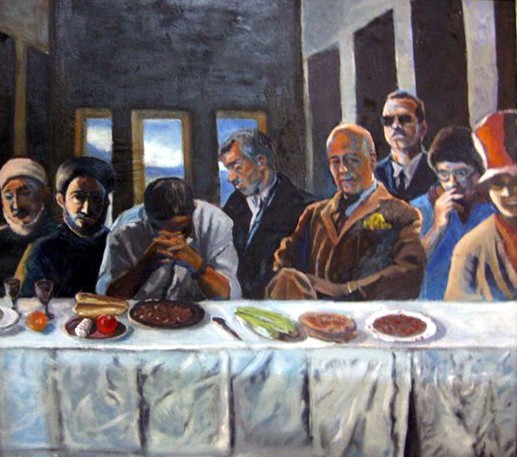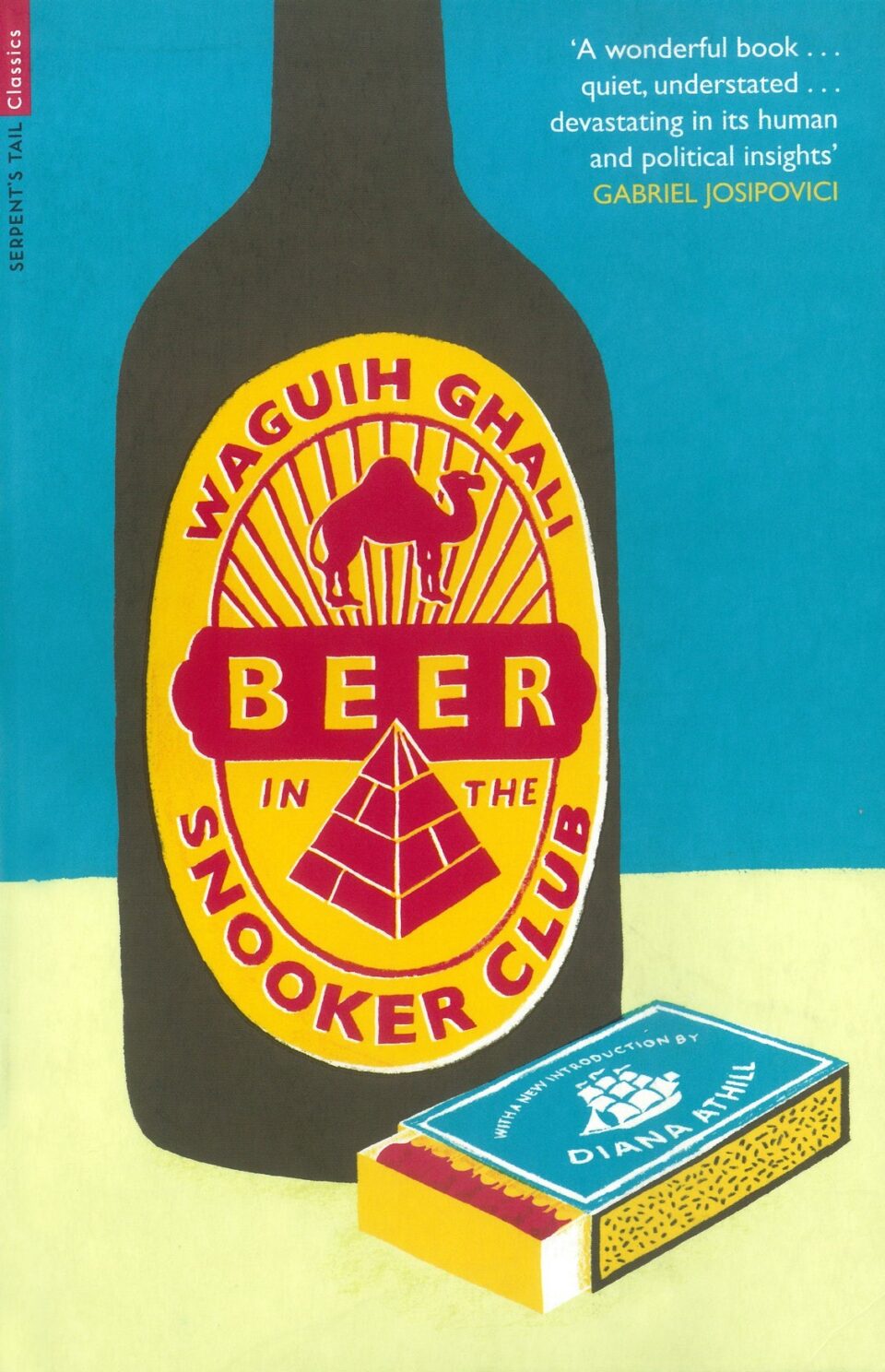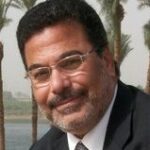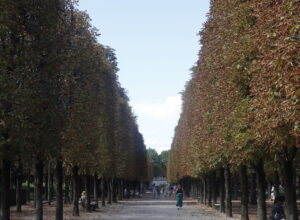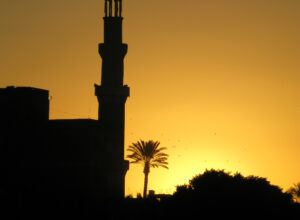From the Window of Cell Number 5
Translated by Lara Elgibaly
Ahmed Fouad Negm 1929 – 3rd December, 2013
The cell’s small window with its rough black bars was my only portal to the outside world. From the window I heard the heavy fall of the prison guards’ footsteps; through the window my hope was renewed at the addition of every new prisoner, each one a university student; students who were punished through arrests and assaults by the Sadat regime whenever they took to the streets calling for democracy and the liberation of Sinai’s occupied land in June of 1967.
In cell number 5, I spent New Year’s Eve of 1973. A night that was harsh and brutal for a boy who had not yet reached the age of 21. The standard prevailing accusations of the time were of being an extreme leftist, conspiring to overthrow the government, instigating disruption, and threatening national security. Weighty words that could make anyone disappear in prison for years, but my mind could not comprehend at that tender age the seriousness of being accused of threatening national security. All I knew, all I had demanded along with thousands of university students, was the liberation of Sinai’s lands which had been occupied by Israel, and that the regime allow the people freedom of expression and assembly, as well as ceasing the arrests of political figures and opinion makers.
When I was taken at dawn, from my student dorm room, that I shared in Bayn El-Sarayat across from Cairo University, I did not know that I would be brought to this dark and desolate place. I did not know that I was in the monstrous Al-Qal’aa prison till the next morning when I sensed that there were residents other than myself in that place. I heard someone call out:
“Shabba!”
“Yes, who is it, Bahaa?”
“Samir? Zein? Al-Makhzangi? Al-Kurdi?”
The voices and chants grew louder, the voices of students from all the universities, faces enamored with Egypt, all here in Al-Qal’aa prison chanting “Long live Egypt!”
In Al-Qal’aa prison, as the first hints of dawn broke on the first day of 1974, the great poet Zein El-Abideen Fouad (at the time, a philosophy student in the Faculty of Arts) wrote his famous verses:
“The lovers have been united in Qal’aa prison, The lovers have been united in Bab El-Khalq, The sun is a song rising from our cells, And Egypt is a song sprouting from our vocal chords.” (he literally says Egypt is a song branching up from our palates)
This was the song whose music was later composed by Sheikh Imam Eissa, and which was an inspiration for all youth uprisings, even that of January 2011.
Around midday on that day, the emptiness of the fortress was shaken by our colleague Samir Ghattas’ (at that time, a student in the Dentists’ Faculty). His voice was ringing from a nearby cell, chanting “Negm has arrived ya shabbab! Welcome Abou-El-Nogoom!”
The blended voices of all the residents of the cells, roared out greetings to the Poet of the Egyptian Student Movement of the 1970s, Ahmed Fouad Negm.
As for me, inmate of cell number 5, Negm’s presence in the prison was a wonderful and exciting event. More importantly, he breathed reassurance into my young heart, and I felt in that moment that I was with family, that all of Egypt was with me, there in Al-Qal’aa prison.
He started calling out to us, one by one. “Who’s in cell one? Who’s in two? Who’s in three? What about four? Who’s in five?”
I cried out in my loudest voice: “Me, Negm![1]The word Negm, while also a surname, is Arabic for star. Hence the playful nickname Abou El-Nogoom, derived from his surname, literally translates as “Father of the Stars” and serves two … Continue reading
It’s me,
Shabba!” [2]The word Shabba, while also being the writer’s surname, is Arabic for youth, or young lady. The nickname Abou El- Shabab, is a play on words similar to that employed earlier in “Abou … Continue reading
So he said “You’re here Abou El-Shabbab [Father of Youth]? Well I should warn you about the prison floor, the cold in this place is dreadful!”
I was the youngest of those in Al-Qal’aa, and Ahmed
Fouad Negm treated me as he would his son, a young
poet, a student hailing from Mansoura, the land of poets
and of Um Kulthum. [3]Um Kulthum, The Star of the East, was and remains one of Egypt’s most renowned singers, locally and internationally. She hails from a small village in the Daqahlia governorate, of which Mansoura is … Continue reading
His house in the alleyway
of Housh-Kadam, in El-Ghouriya, was the first place I
visited when I came to study journalism at Cairo
University. We would finish our lectures and head to
Housh Kadam, and gather around Negm as he recited his
poems while Sheikh Imam sang in his Azharite voice and
played an old Oud:
“Egypt, our nation,
Ya Baheya [4]Baheya is a female Egyptian name, but has also become synonymous with Egypt itself. When Egypt is personified, she appears in the form of Baheya. The connection is based on the folkloric story of … Continue reading
You with the veil and galabeya,
Time has aged (shaab) [5]The masculine version of the aforementioned Shabba. Literally translates as the noun “youth”, or the adjective “youthful.” But can also mean aged, which is what it means here.
And you are still young (shabba), It’s departing, and you are coming.”
And whenever the Sheikh would sing “You are shabba.”
Negm would repeat it in a louder voice and point at me, laughing.
At that time I was known among the university students
for being well versed in Ahmed Fouad Negm’s poems; I
would recite them from memory at seminars and conferences.
One of his most widespread famous poems then,
was his poem about Che Guevara, in which he eulogized
the great freedom fighter who was killed by the American
intelligence in the jungles of Bolivia, while simultaneously
mocking the “microphone fighters” of Egypt:
“Guevara has died,
Guevara has died
Late-breaking news, all the radios cried.
And what say you in your wealth, you antique ones
[6]Ya Antikat, you antique ones, is a reference to the Regime’s leaders and supporters.
Drowning in wealth and fed so well,
You who are warm with your heaters ablaze,
Guevara has died
You contemporary fighters,
No more chatter, or advertisements or deafening din.”
Ahmed Fouad Negm was the most famous political
prisoner in Egypt, an inspiration to the revolution and the
youth, the poet of the poor. He was the resident of cell
number 6, adjacent to mine in Al-Qal’aa, and in this cell
he wrote his idolized poem about us, the students of the
‘70s.
“Good morning to the blossoming flowers in the gardens of Egypt…
Good morning to the nightingale serenading us with songs of birth oh Egypt…
A morning of midwives and bundles and spraying of salt at wedding processions,
A morning that will raise our flags from Al-Qal’aa to Bab El-Nasr” [7]Bab El-Nasr is one of three massive ancient gates marking what were, in the mid 11th century, the perimeters of the city of Cairo. Today the gate stands in an area commonly referred to as Fatimid, or … Continue reading
From that day onwards Ahmed Fouad Negm never stopped
dreaming of revolution, never stopped
igniting change through poetry, and resisting injustice
while fighting for the poor. He was imprisoned 18 times,
his poetry transcended state borders and his spicy
humour and biting sarcasm enflamed the oppressive and
tyrannical systems of Egypt and the Arab region. Negm,
son of Housh-Kadam, lived his life long and wide, outlived
his torturers and the rulers he attacked and mocked, they
died either defeated, assassinated, or were thrown in
prison by the masses. Negm lived and roamed free,
he lived to see Egyptians instigate two revolutions in three
years, as millions chanted his words in Tahrir square:
“The courageous one is courageous, The coward is a coward, Let’s go you, let’s go you? Have courage,
Let’s go down to the square.”
References
| ↑1 | The word Negm, while also a surname, is Arabic for star. Hence the playful nickname Abou El-Nogoom, derived from his surname, literally translates as “Father of the Stars” and serves two purposes; it emphasizes Negm’s charismatic qualities, and it implies respect and seniority. He is the bright shining star, the father of all stars, the inspiration whose light these young activists follow. |
|---|---|
| ↑2 | The word Shabba, while also being the writer’s surname, is Arabic for youth, or young lady. The nickname Abou El- Shabab, is a play on words similar to that employed earlier in “Abou El-Nogoom.” Literally translated as “Father of the Youth,” it emphasizes the writer’s youth, while also paying homage to his leading role in the student movement. |
| ↑3 | Um Kulthum, The Star of the East, was and remains one of Egypt’s most renowned singers, locally and internationally. She hails from a small village in the Daqahlia governorate, of which Mansoura is the capital. Although she moved to Cairo at a young age, her origins are a matter of local pride to Mansoura residents; to this day her statue sits atop one of the city’s central squares. |
| ↑4 | Baheya is a female Egyptian name, but has also become synonymous with Egypt itself. When Egypt is personified, she appears in the form of Baheya. The connection is based on the folkloric story of Yassin and Baheya. |
| ↑5 | The masculine version of the aforementioned Shabba. Literally translates as the noun “youth”, or the adjective “youthful.” But can also mean aged, which is what it means here. |
| ↑6 | Ya Antikat, you antique ones, is a reference to the Regime’s leaders and supporters. |
| ↑7 | Bab El-Nasr is one of three massive ancient gates marking what were, in the mid 11th century, the perimeters of the city of Cairo. Today the gate stands in an area commonly referred to as Fatimid, or Islamic Cairo and is near to Ahmed Fouad Negm’s home in El-Ghouriya. The name translates simply as “Victory Gate.” |
